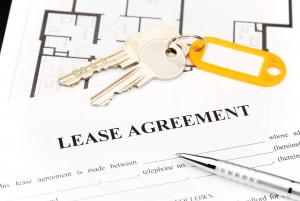Get in touch today
Call us on 07855 849232 or
email david.gordon@dg-law.co.uk
Contracted Out – Leasing Without Constraint?
Would an Excluded or Contracted Out Lease Be a Good Option For You? Property Solicitors Ready To Help
Explore the possibilities
If the landlord wants the tenant to leave the property due to a number of issues, who would benefit from the Excluded or Contracted Out lease – a lease outside the Landlord and Tenant Act 1954? If you’re the landlord, consider the possibilities: your tenant has failed to pay rent and/or utility bills, the business causes disturbances in the area and is a nuisance to the ever-complaining neighbours. Perhaps your tenant has undergone unauthorised alterations or caused damages to the property; in short, you need to protect your investment and ask the tenant to go, but you’re bound by contract under the Landlord & Tenant Act 1954.
If you, the tenant, have a tenancy agreement with a 2 year fixed term, the tenancy will automatically renew itself under Section 24 of the Landlord & Tenant Act 1954. A continuation of tenancy, or holding over, basically means that the tenancy will continue if it hasn’t been terminated in accordance with the Act. The landlord has to give notice to the tenant, terminating the tenancy agreement at a stipulated date and in accordance with the Landlord & Tenant Act 1954, and if the tenant has requested in writing that the tenancy should continue or be terminated, also in accordance with this same Act.
An Excluded or Contracted Out Tenancy
A business lease will generally have Security Provisions set out by the Landlord & Tenant Act 1954, which protect both tenant and landlord from sudden eviction or sudden termination of tenancy. But both tenant and landlord can agree to be excluded from these provisions which are inserted as clauses in the lease, after following procedures for contracting out as set out by the Landlord & Tenant Act 1954. So if you are looking to lease premises for your business, you’ll likely want a long term lease with Security Provisions.
A landlord will normally prefer Security Provisions because the property lease is an investment and it serves of no purpose but to incur expenses, if it’s not generating any income by way of a rent with all utility bills, including council tax, being paid by the tenant. But the landlord may equally find it more profitable to sell the property at a later date, or make changes, for instance turning the one property into two premises that generate income from two tenants. Whatever the reason may be, a landlord might way up the pros and cons of Security Provisions stipulated by the Landlord & Tenant Act 1954 and decide to opt out – excluded out or contracted out.
2003 Reform Order of Act 1954
Here is the revised procedure for contracting out as contained in the 2003 Reform Order (www.legislation.gov.uk):
1. The Landlord to serve notice on the Tenant warning him of the consequences of entering into an Agreement excluding the protection afforded by Section 24-28 and advising him to obtain professional advice.
2. Confirmation from the Tenant in the form of a Declaration that he has received the Notice, read it and accepts all consequences of entering into the Agreement to contract out.
3. Reference to the Notice, Declaration and the agreement to contract out being referred to in the Tenancy Agreement.
Before Deciding – Act 1954 or Contracting Out
If a landlord and tenant agree to lease a property, before signing a lease they are both strongly advised to contact a commercial property lawyer in order to discuss their obligations as landlord and tenant under Act 1954 and also explore possibilities. Both the landlord and tenant should enter an agreement that benefits both parties but equally need to be aware of any unforeseen occurrences during the tenancy. It is in the best interest of the tenant and landlord that a commercial property lawyer registered with the Lease Hold Advisory Service reviews an existing lease or drafts a brand new lease. If you are a tenant or landlord, are looking to lease or make changes to a lease, please give us a call for your first free consultation. By Sandra Garcao
Make An Enquiry
Call us now on 07855 849232 or complete our Online Enquiry and we will be delighted to talk with you about your legal matter.
Share Article With:
Make An Enquiry
Blog Categories
Client Reviews
DG Law were fantastic throughout our purchase process. We had a short, fixed, timeline to
DG Law supported us through a very difficult contractual negotiation to achieve exactly the outcome
We were very pleased with the way that DG Law helped us on our transaction
DG Law resolved a difficult lease renewal for us and their services were excellent –
I needed understanding and experienced legal advice. DG Law provided an excellent service at a
My experience was second to none – the service was professional and personal. DG Law
DG Law always step up to the plate on our transactions and handle the various
DG Law was recommended to me and my partner and I received excellent advice –
Having worked with DG Law a number/couple of times now, I have been really impressed
DG Law were constantly at hand, and kept pro-active throughout the thorny process of getting
DG Law came recommended to me and whilst setting up a new business it was
We were recommended three lawyers to handle the sale of our seven year old successful
Why Choose Us?
We live by our core values of transparency, flexibility and being honourable – every day
We put ourselves in your shoes so we understand your problems from the inside out
We deliver our advice in a way that is easy to understand










